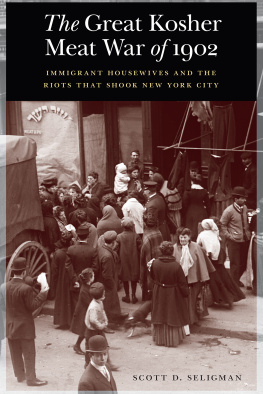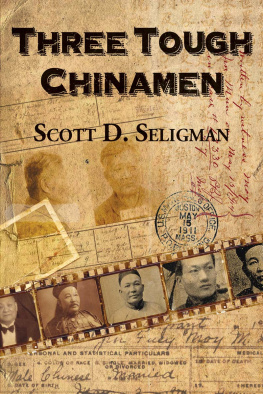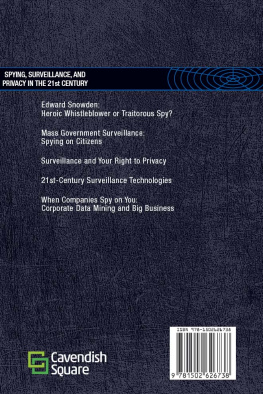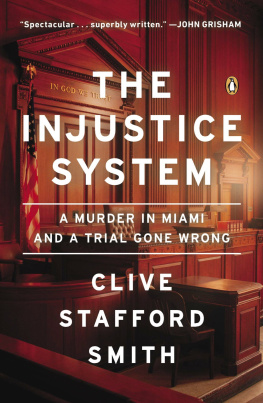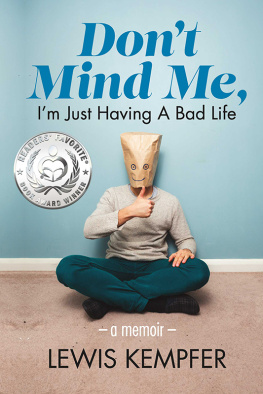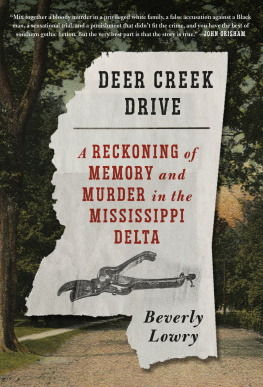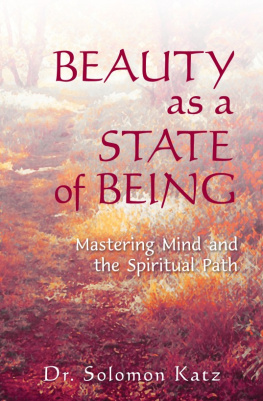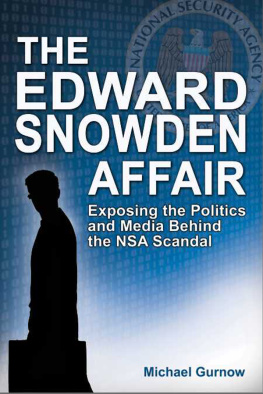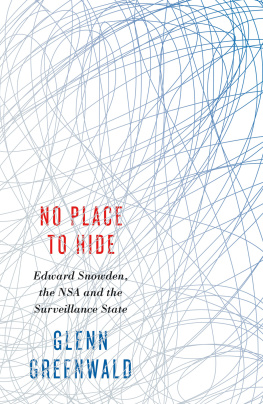
In these pages we see ugly, abandoned skeletons of white supremacy, but we can also recognize racist practices still very much present today. Seligmans account is compelling, even-handed, and intelligent. It is meticulously sourced and artfully presented, a page-turner. Seligman makes a convincing argument that to achieve racial reconciliation we must correct the injustices of the past as well as those of the present.
Will Schwarz, president of the Maryland Lynching Memorial Project
The death penalty in America has been plagued with racial bias since the days of slavery. Even still, data reveal that the race of the victim and the perpetrator matter when it comes to sentencing death penalty cases. With a storytellers skill and a historians eye for detail, Scott Seligman draws the reader into this controversial early twentieth-century death penalty case and tells us why it matters today.
Jamal Simmons, media commentator and political analyst
A Second Reckoning is as haunting as it is relevant. Seligman crafts a well-written tale that both recounts and warns against the immediate and chronic damage that acts of legally sanctioned injustice can wreak on a community and a people. It is both stirring and alarming that John Snowdens fate in 1919 relates so directly to today.
Christopher H. Haley, director, Study of the Legacy of Slavery in Maryland, Maryland State Archives
Seligman tells the story with careful historical accuracy, in superbly researched detail, and in a style that is clear, lively, colorful, and thoroughly engaging.... Seligman respects the reader throughout. He presents the evidence honestly and leaves to the reader the judgment of whether Snowden is guilty or not.
Michael Millemann, Jacob A. France Professor of Law, University of Maryland Carey School of Law
A Second Reckoning
Race, Injustice, and the Last Hanging in Annapolis
Scott D. Seligman
Potomac Books
An imprint of the University of Nebraska Press
2021 by Scott D. Seligman
Cover designed by University of Nebraska Press; cover images are from the interior.
Author photo Frank Jang.
All rights reserved. Potomac Books is an imprint of the University of Nebraska Press.
Library of Congress Cataloging-in-Publication Data
Names: Seligman, Scott D., author.
Title: A second reckoning: race, injustice, and the last hanging in Annapolis / Scott D. Seligman.
Description: Lincoln: Potomac Books, an imprint of the University of Nebraska Press, 2021. | Includes bibliographical references and index.
Identifiers: LCCN 2021000457
ISBN 9781640124653 (hardback)
ISBN 9781640124868 (epub)
ISBN 9781640124875 (pdf)
Subjects: LCSH : Snowden, John, 18901919Trials, litigation, etc. | Trials (Murder)MarylandBaltimore County20th century. | HangingMarylandBaltimore County20th century. | Discrimination in criminal justice administrationUnited StatesHistory. | African AmericansCivil rightsHistory. | United StatesRace relationsHistory. | PardonUnited States. | Evidence, CircumstantialUnited States. | BISAC : SOCIAL SCIENCE / Discrimination | HISTORY / United States / 20th Century
Classification: LCC KF 224. S 595 S 45 2021 | DDC 364.152/3092 [B]dc23
LC record available at https://lccn.loc.gov/2021000457
The publisher does not have any control over and does not assume any responsibility for author or third-party websites or their content.
The search for justice has no statute of limitations.
Parris N. Glendening, governor of Maryland (19952003), May 31, 2001
Contents
One hundred yearsalmost exactly to the dayafter the brutal murder of Lottie May Brandon in Annapolis, Maryland, for which John Snowden was hanged, white supremacists marched on Charlottesville, Virginia, to protest the threatened removal from a city park of a statue of Confederate general Robert E. Lee. The Unite the Right protest of August 2017 turned violent when armored, torch-bearing hate mongers clashed with counterprotesters, dozens of whom were injured and one of whom was maliciously mown down and slain by the driver of a car.
If ever an event demonstrated the ability of a figure long dead to remain very much alive in peoples minds and to motivate passionate behavior in the present, this was it. Robert E. Lee died in 1870, but he and others have remained potent symbols, whether of the shame and tragedy of slavery and segregation or of the lost cause of the Confederacy.
The events in Charlottesville, and the videotaped murder of George Floyd by a Minneapolis policeman three years later, have turbocharged the national debate over how to address our countrys original sin and its aftereffects. Americans today find ourselves more preoccupied than usual with one of our familiar national pastimes: wrestling with our past times.
Reevaluating our collective history, reinterpreting it, and making new judgments about it has always been part of the American experience, and if we are fortunate, always will be. This openness to learning from the past and willingness to make amends and changes where possible and desirable, which has ebbed and flowed throughout our history, is one of the more admirable characteristics of the American people when it prevails. I have serious doubts as to whether there is such a thing as American exceptionalism, but if there is, this surely must be one of its components.
In these polarized times, the urge to look backward has become especially urgent with regard to our racial history. What is the country to do about the remaining statues erected to honor Confederate generals who fought to preserve human bondage? How should we explain to our children why their high school bears the name of a racist, slave-owning president? How ought we to deal with the legacy of past eras that were less just and less fair than we like to think we are today?
Most importantly, what can we, as a society, do to right the wrongs?
In recent years, civil rights advocates have become more aggressive about lobbying to remove monuments to Americas racist past, and those arrayed on the other side have risen up in opposition, their passion fanned by dog whistles from on high. Talk has turned to action, sometimes violent. Nevertheless, new judgments about history continue to be made. Between the debacle in Charlottesville and the killing of Floyd, well over a hundred Confederate monuments and symbols were removed from public spaces, including a statue of Supreme Court chief justice Roger B. Taney, author of the infamous 1857 Dred Scott decision that denied citizenship to Blacks, which was moved into storage from the State House grounds in Annapolis in 2017 under cover of darkness. More than a hundred more have been taken down in the aftermath of the Floyd murder, some by administrative or legislative action, others by passionate demonstrators.
Struggling with the detritus of past eras and attempting to right the most egregious wrongs, however, is a challenge that goes far beyond the fate of a few hundred bronze statues and stone markers. Over the years, Americans have eliminated many egregious discriminatory policies imposed by the executive branches of their national, state, and local governments and repealed many of their racist laws. Those are two legs of the stool. But a moral nation must also reckon with its judicial past, especially those cases in which prejudice is thought to have tainted procedures, denied rights, or perverted verdicts. Should not historic miscarriages of justice also be subject to a second look?


